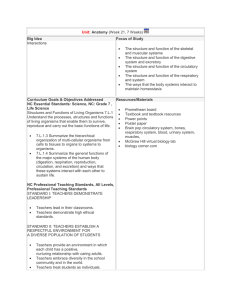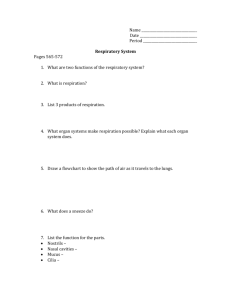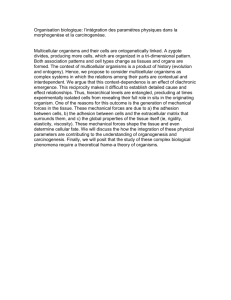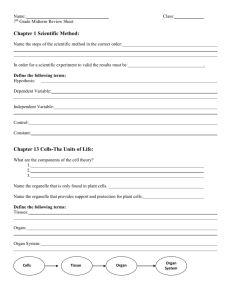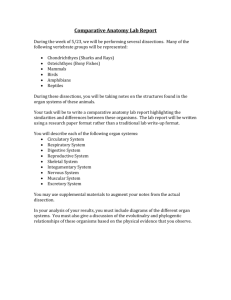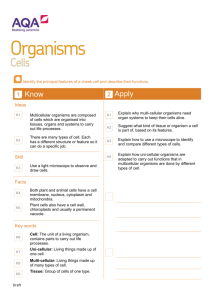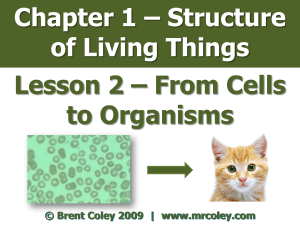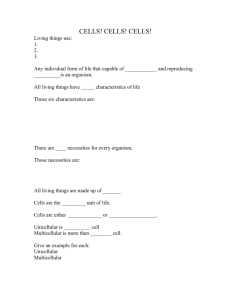Dec 14 - Dec 18 Davenport and Wilkins Learning Goals for this
advertisement
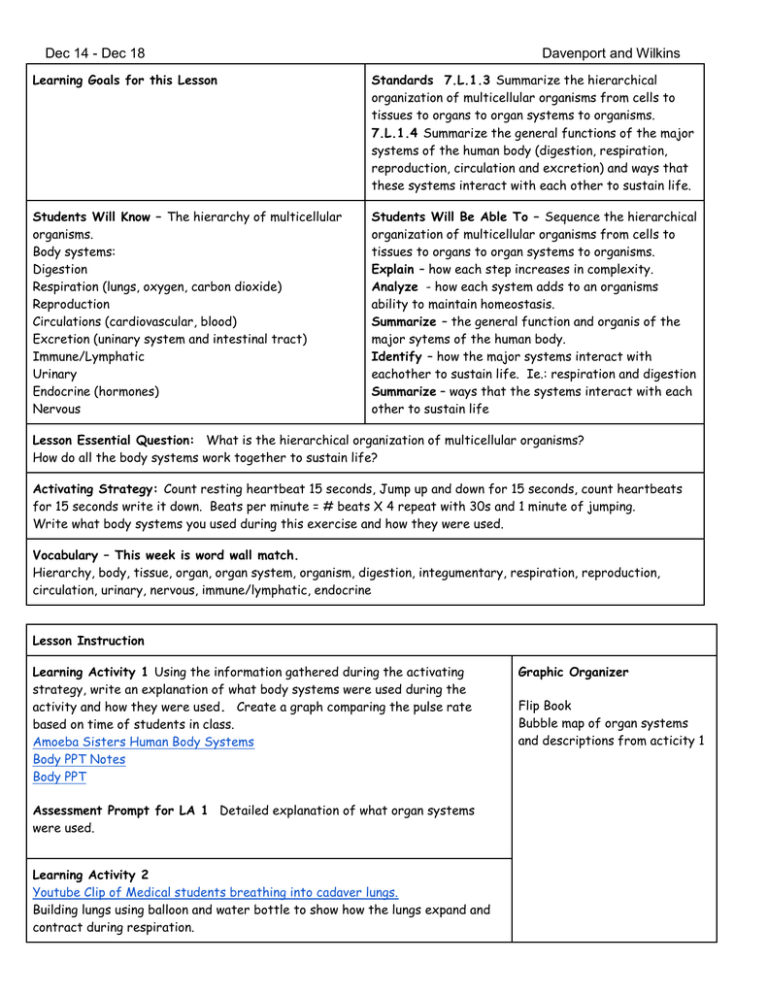
Dec 14 - Dec 18 Davenport and Wilkins Learning Goals for this Lesson Standards 7.L.1.3 Summarize the hierarchical organization of multicellular organisms from cells to tissues to organs to organ systems to organisms. 7.L.1.4 Summarize the general functions of the major systems of the human body (digestion, respiration, reproduction, circulation and excretion) and ways that these systems interact with each other to sustain life. Students Will Know – The hierarchy of multicellular organisms. Body systems: Digestion Respiration (lungs, oxygen, carbon dioxide) Reproduction Circulations (cardiovascular, blood) Excretion (uninary system and intestinal tract) Immune/Lymphatic Urinary Endocrine (hormones) Nervous Students Will Be Able To – Sequence the hierarchical organization of multicellular organisms from cells to tissues to organs to organ systems to organisms. Explain – how each step increases in complexity. Analyze - how each system adds to an organisms ability to maintain homeostasis. Summarize – the general function and organis of the major sytems of the human body. Identify – how the major systems interact with eachother to sustain life. Ie.: respiration and digestion Summarize – ways that the systems interact with each other to sustain life Lesson Essential Question: What is the hierarchical organization of multicellular organisms? How do all the body systems work together to sustain life? Activating Strategy: Count resting heartbeat 15 seconds, Jump up and down for 15 seconds, count heartbeats for 15 seconds write it down. Beats per minute = # beats X 4 repeat with 30s and 1 minute of jumping. Write what body systems you used during this exercise and how they were used. Vocabulary – This week is word wall match. Hierarchy, body, tissue, organ, organ system, organism, digestion, integumentary, respiration, reproduction, circulation, urinary, nervous, immune/lymphatic, endocrine Lesson Instruction Learning Activity 1 Using the information gathered during the activating strategy, write an explanation of what body systems were used during the activity and how they were used. Create a graph comparing the pulse rate based on time of students in class. Amoeba Sisters Human Body Systems Body PPT Notes Body PPT Assessment Prompt for LA 1 Detailed explanation of what organ systems were used. Learning Activity 2 Youtube Clip of Medical students breathing into cadaver lungs. Building lungs using balloon and water bottle to show how the lungs expand and contract during respiration. Graphic Organizer Flip Book Bubble map of organ systems and descriptions from acticity 1 Assessment Prompt for LA 2 Learning Activity 3 Youtube video Dissecting Brains Sam’s Brainy Adventure (Computers) Comic Strip Assignment Assessment Prompt for LA 3 Discussion on how external factors such as smoking, poor eating habits,and stress affect the homeostasis of the nervous system. Learning Activity 4 When Sweet Corn Turns to Poo!!! Digestive System Assessment Prompt for LA 4 Digestive System crossword puzzle, diagram, fill in blank Human Body System Quiz Monday 12/7 Activating Strategy: Jumping and timing pulse. Students will write an explanation of what body systems are involved in the demonstration we just performed. Explain how the system was used. Begin the PPT Notes for the human body. Tuesday 12/8 Wednesday 12/9 Thursday 12/10 Friday List the body systems containing these organs: Skin, Kidney, Blood, stomach and glands that produce hormones. Start review Christmas ornaments. No class time. organization for final Glitter paper, Paint and exam. bulbs. styrofoam and Continue the human body PPT. we have covered. glitter. PPT for title and brief description of each unit Study guide is in the I have placed the works and will be video links for the available online over the week in the PPT on the break. appropriate system slides. Body Systems word Using the body and search. organs have students identify each as they remove them. Summarizing Strategy Summarizing Strategy Christmas video? 12/11
